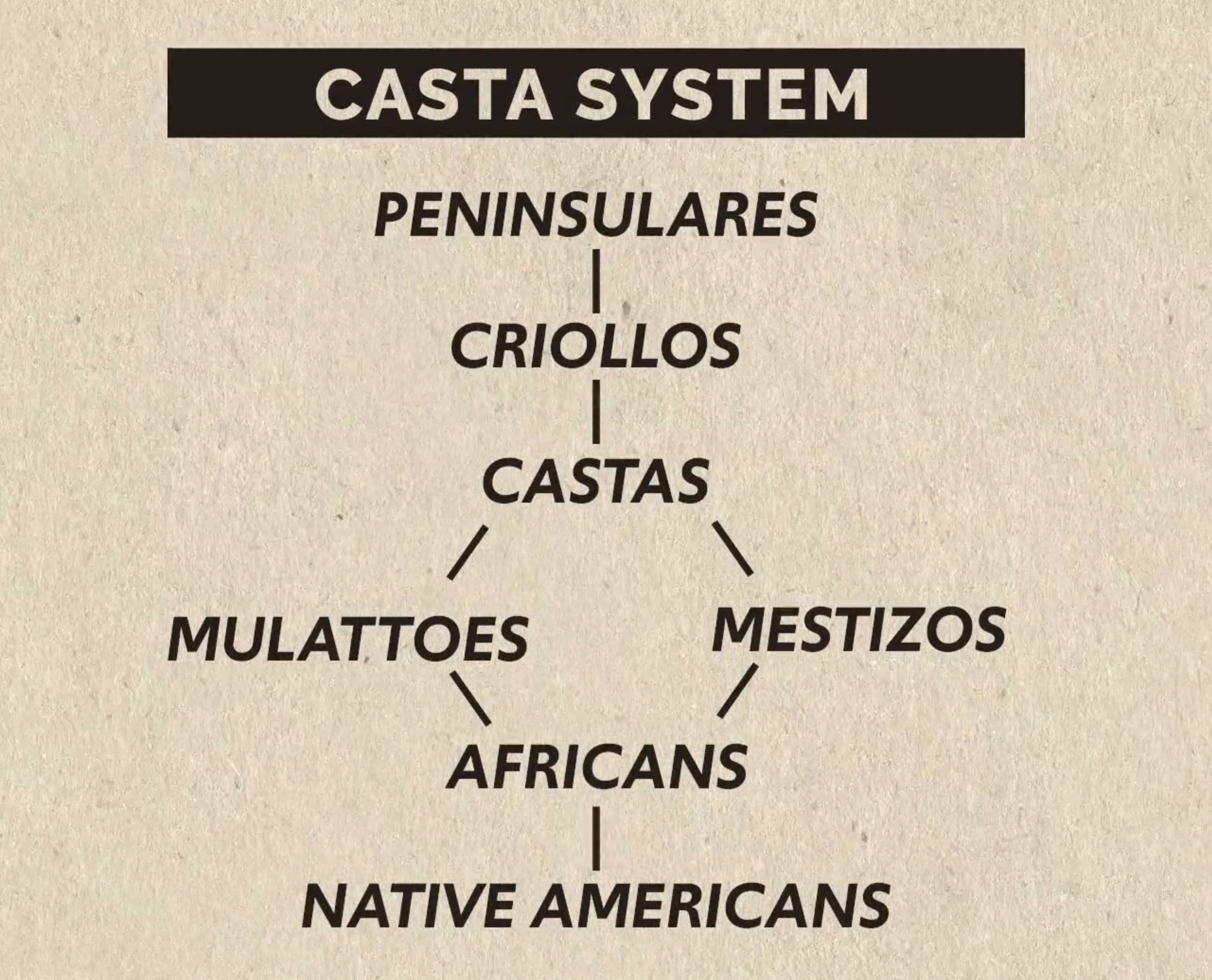AP US History Unit 1
1/20
Earn XP
Description and Tags
America before and during European arrival
Name | Mastery | Learn | Test | Matching | Spaced | Call with Kai |
|---|
No analytics yet
Send a link to your students to track their progress
21 Terms
Explain the Pueblo People
Native Americans from modern-day Utah and Colorado
farmers/settled population
planted and harvested crops like beans, squash, maize
had advanced irrigation systems
built small urban centers made of hardened clay bricks
Explain the natives from the Great Basin region in the Great Plains (modern-day land from Colorado to Canada)
nomadic & hunter gatherers
wandered the Great Plains
hunted buffalo & gathered food
organized themselves into small egalitarian kinship bands instead of cities
group, familial relationship where they are equal; no hierarchy
e.g. Ute people
Explain the natives from the Northwestern area and Pacific coast of the US
developed permanent settlements
due to abundance of fish, small game (wild animals like rabbits and doves; smaller than big animals), and diversity of plant life
e.g. Chinook and Chumash
Who were the Chumash people?
in the northwestern area
built villages capable of sustaining nearly a thousand people
participated in regional trade networks along the coast
Who were the Chinook?
Native Americans up in the Pacific Northwest
lived similarly to Chumash
built extensive plank houses that housed whole families in kinship groups
Who were the Iroquois?
natives from northeast
farmers
lived in communal longhouses constructed from abundant timber
Big idea of Native Americans before Europeans arrived:
Native Americans before the arrival of Europeans had very diverse and complex societies based on the environments they lived in (including access to large trading networks)
What caused the Europeans to arrive in the New World?
1300s-1400s; European kingdoms politically unified, became centralized states governed by monarchs —>
growing upper class, higher demand for luxury goods from Asia —>
seeking sea-based routes b/c land-based controlled by Muslims —>
Columbus sailed west in 1492 & discovered New World’s hidden wealth opportunities —>
brought Columbian Exchange by other European nations like Portugal, France, England due to competition for wealth —>
transfer of peoples, animals, plants, and diseases from east and west
What is the Columbian Exchange?
transfer of peoples, animals, food, goods, and diseases (New World and Europe/Africa)
examples:
food - potatoes, tomatoes, maize (Americas to Europe) and wheat, rice, soybean (Europe to Americas)
animals - turkey (Americas to Europe) and cattle, pig, horses (Europe to Americas)
disease - smallpox (Europe to Americas) and syphilis (Europeans picked up from traveling, unsure if from the Americas)
goods - gold and silver from the Americas
people - enslaved Africans, new people living in the Americas
What is the encomienda system?
colonial labor system where the Spanish (encomenderos) enslaved natives to farm and mine in the Americas
What were the main problems with the encomienda system?
natives disobeyed and found ways to escape brutality
natives were dying from smallpox b/c they were not immune (unlike europeans)
What was the solution to the main issues of encomienda system and why?
import enslaved Africans to work on plantations
why:
Africans did not know the geography of the New World, could not escape
had more immunity to European diseases because they had previous contact
How did the Spanish reorder society in Central and South America?
created the caste system which is a system of social classes based on race

How did the Columbian Exchange cause societal shifts in European states?
went from feudalism to capitalism due to wealth which encouraged the rise of joint-stock companies to fund for exploration
example of cultural integration in North America
natives taught the English how to hunt in the forest, and natives adopted iron tools and weapons
What was the belief system justifying brutality toward Native Americans?
the Spanish believed that Native Americans were ontologically less than human
Who was Sepulveda?
a priest who believed that natives were less than human and benefitted from harsh treatment
who was Bartolome de Las Casas?
a priest who spent time with natives and saw them and saw them as humans worthy of defense
persuaded the king to make laws to end native slavery (but wealthy nobles got king to repeal those laws)
How was the enslavement of Africans justified by European colonizers?
By their interpretation of the Bible’s book of Genesis:
Noah’s son Ham sinned against his father so his son Canaan was punished with generational slavery.
believed dark skin = marking of Canaan’s slavery and slavery was destiny for people with dark skin